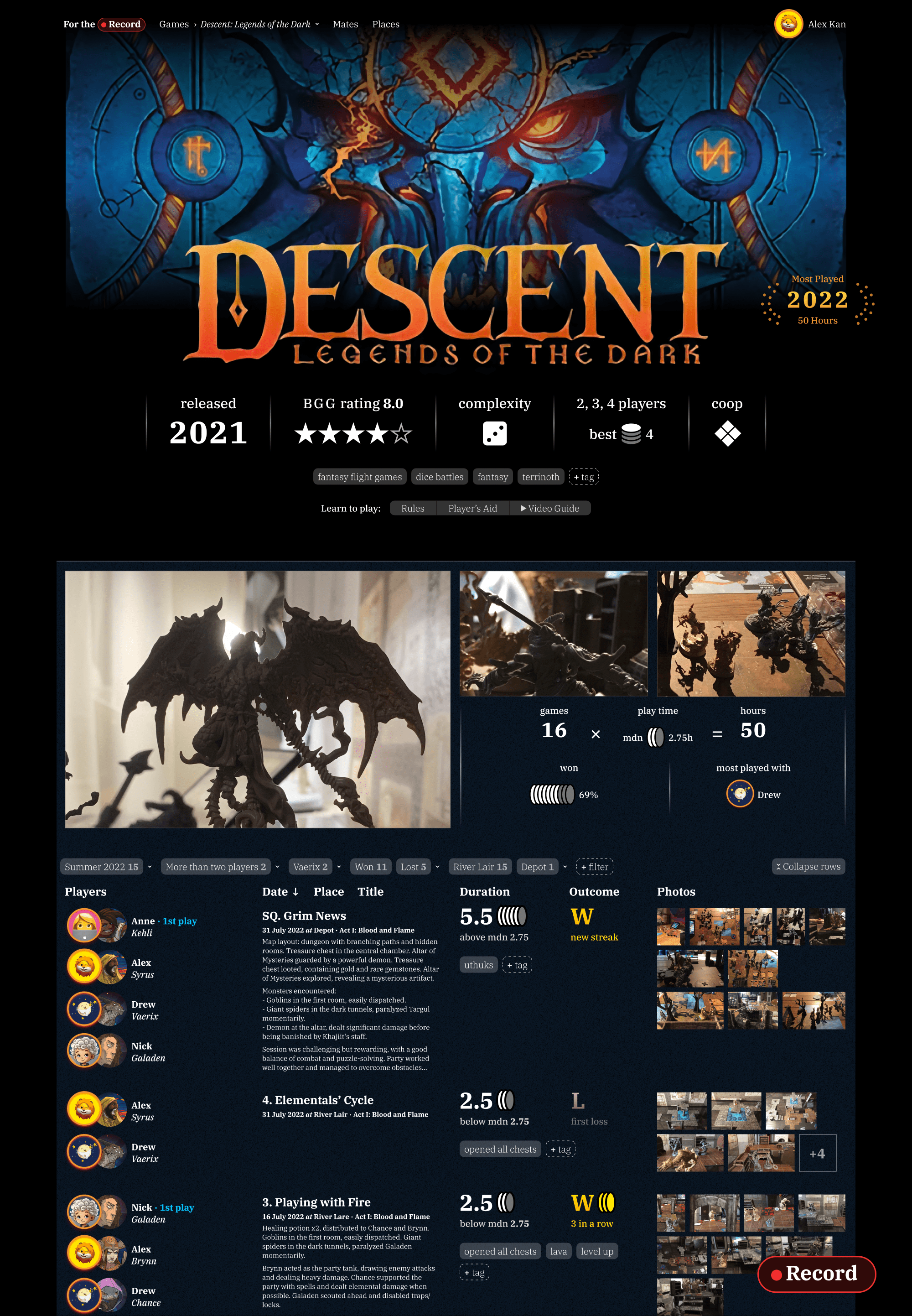For the Record
A service for logging board game sessions.
Problem & Role · Research · Visual Design · Interface Design
Problem
Existing solutions for board game logging provide a lot of stats, but do not capture fun aspects of the hobby and can also seem intimidating for more amateur players.
Role
I'm the sole designer on the project working together with a full-stack developer. The project is a work in progress.
Research
Problem & Role · Research · Visual Design · Interface Design
Methods
To address the research question
- I played board games with friends and strangers, in-person and online
- interviewed people I had played with
- studied youtube videos and podcasts of people playing board games and talking about their experience
- analysed the existing solutions for board game logging
Player Journey
The findings suggested four main stages of player journey:

The breakdown allowed to identify some gaps in the experience of logging board game sessions, such as:
- Planning: it can be a challenge to choose a game (or few) for a board game night with friends. The host has to juggle several factors: how many players? how many are available for the whole night and how many will come and go? how much time? what is everyone's skill level and preferences?
- Anticipation: is arguably the most exciting stage, yet is currently not supported by the existing apps and services
- Playing: it is common to forget to record start/stop time for a session or forget to take photos at key moments
- Reflection: insights on previous play sessions can be sources of banter among friends or serve as ice breakers for players who don't know each other well
Jobs to Be Done
Research helped to define the most important jobs for a board game logging experience:
- revealing insights that would be otherwise hidden of forgotten
- facilitating board games being actually played
- a time machine that lets players travel back for analysis of past sessions, as well as for fun memories
- a trophy room for board game related achievements
Personas
Finally, research suggested two main board game logger types:
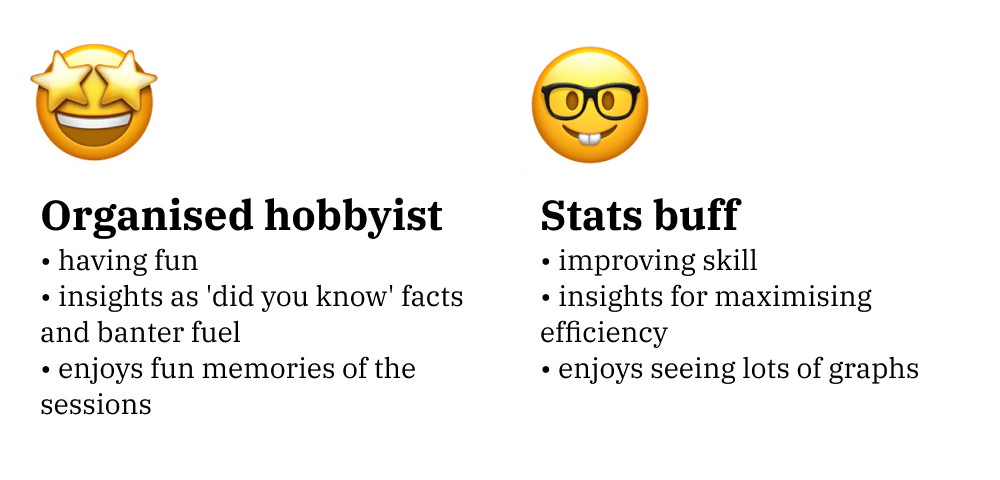
The findings from the research phase highlighted the overall problem: the existing solutions for board game logging provide a lot of stats, but do not capture fun aspects of the hobby and can also seem intimidating for more hobbyist players.
Visual Design
Problem & Role · Research · Visual Design · Interface Design
Research helped me to identify three main goals I wanted to achieve with visual design. First, I wanted to preserve the spirit of board games: fun, colourful, and inviting. To do that, For the Record emphasises the art rather than graphs:
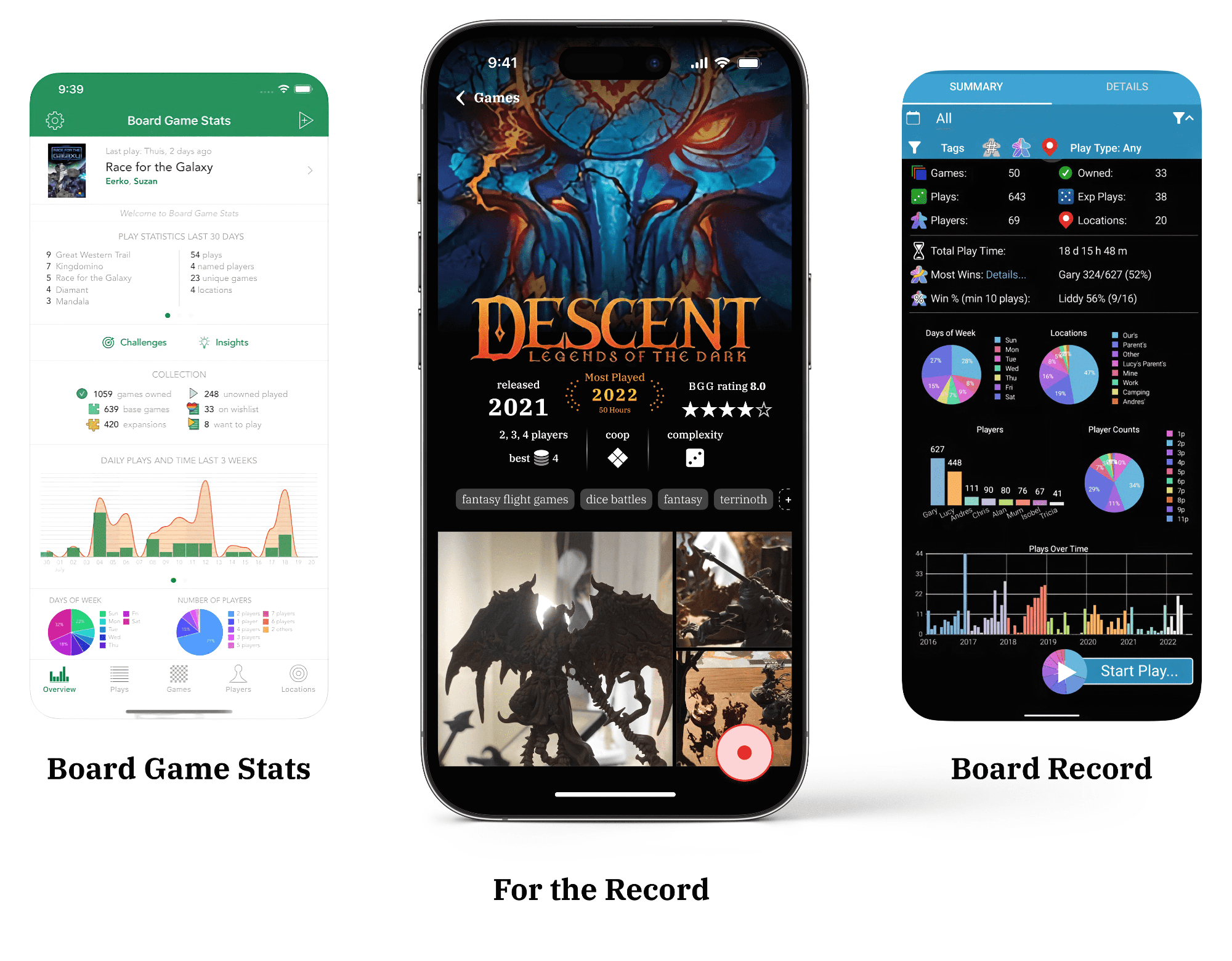
Another goal for the visual design was to make different board games feel distinct. Simple changes to colour schemes allowed to achieve the goal in a scaleable way.
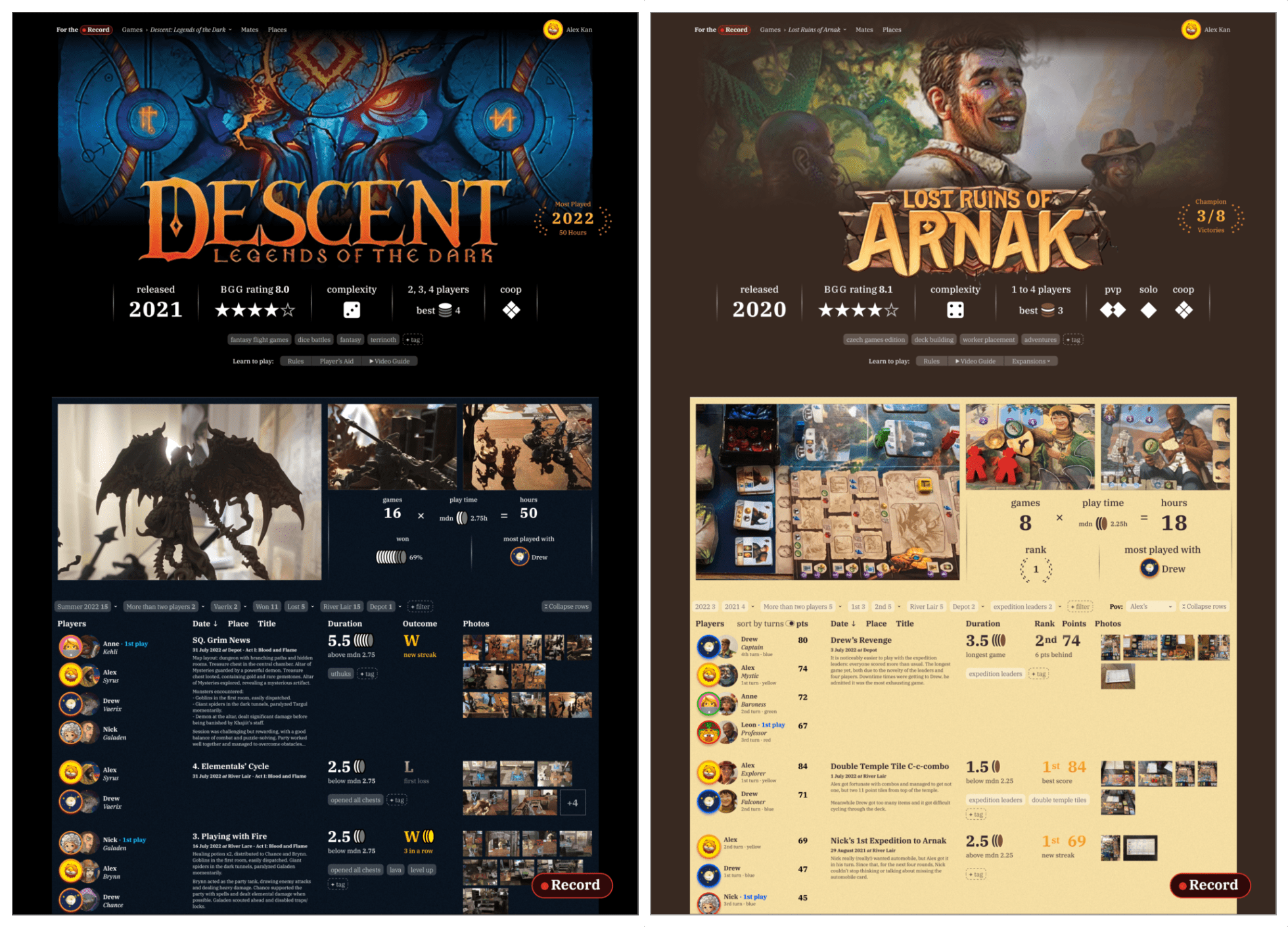
Finally, it was important to make the form for recording a new session stand out. This form can be summoned from any screen and has to be instantly recognisable. The logo itself invites to record a new session with part of the name serving as a 'record' button:
Record button also shows time while recording:

Interface Design
Problem & Role · Research · Visual Design · Interface Design
No Intimidating Spreadsheets
For the Record takes a step back from spreadsheets to present information in a more inviting way:
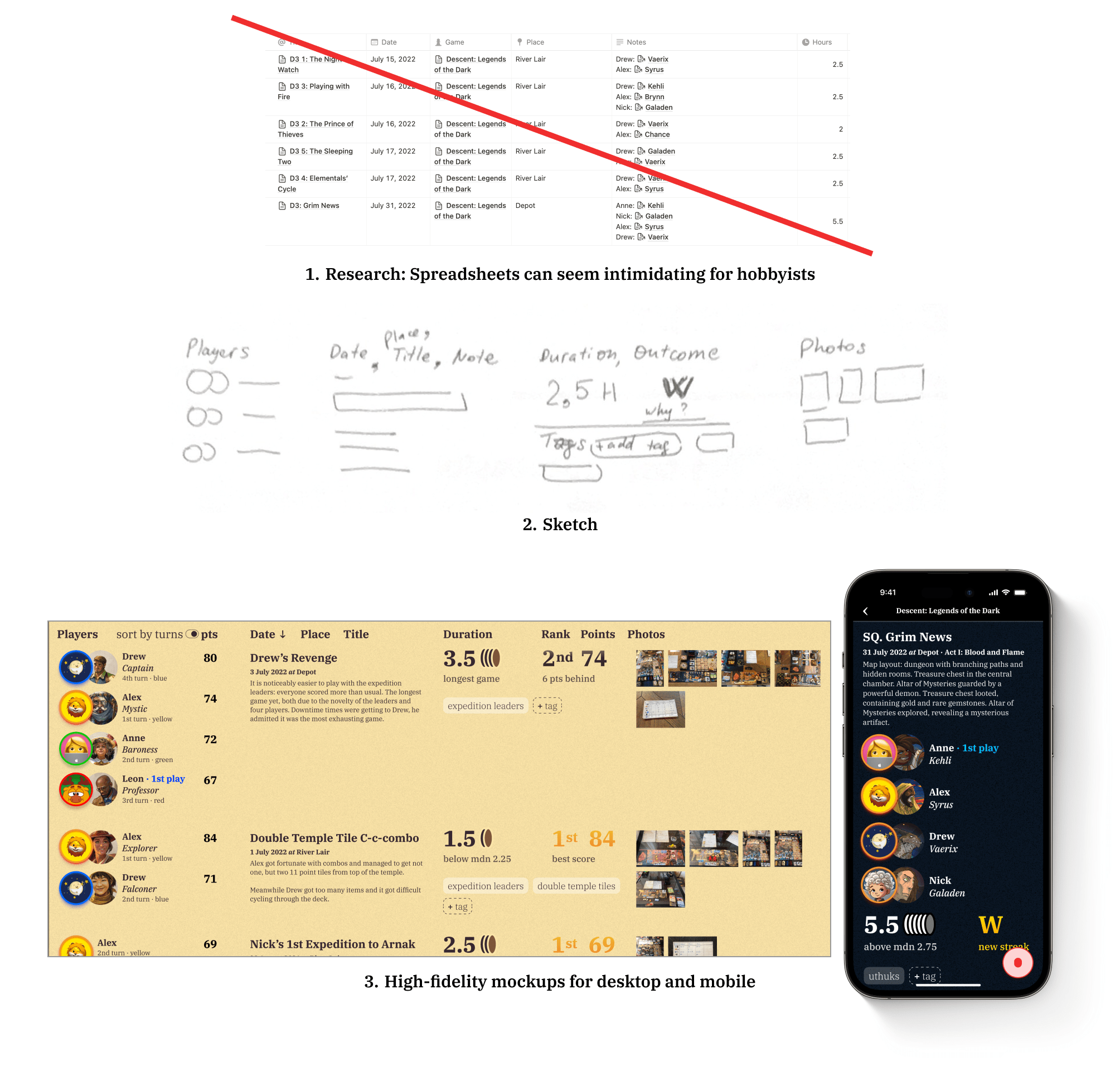
Insights That Seek The Player
Instead of making players hunt for insights, For the Record brings up insights at every opportunity:
Even filter bars can provide some insights due to intelligent suggestion and grouping. From just a glance, they make clear when someone played a particular game more often, where, with whom etc

Quick Record
Research demonstrated that having to fill in information during or even between game sessions can be annoying. That's why there are no necessary fields in the record form. With just one tap, players create a record that they can complete later.

For the Record also tries to auto-fill as much information as possible, based on previous sessions. For instance, it suggests the game based on which screen the button was pressed on or uses geolocation to identify the place. If players forgot to log when they started or ended, For the Record will suggest using earliest and latest time stamps from the photos.
The service suggests fields based on what was previously logged and its internal knowledge of board games, which is synchronised with BoardGameGeek. Still, players can always manually add or remove any particular field.

